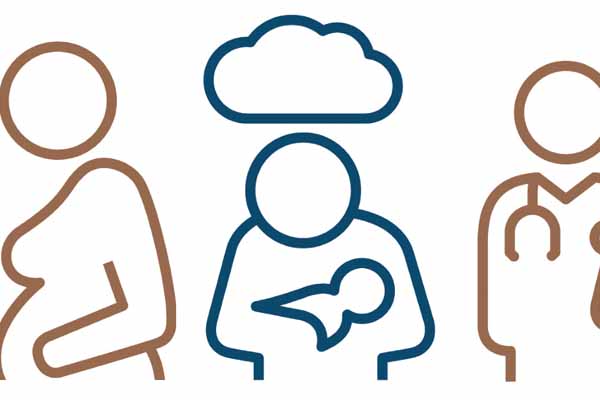
An analysis by the Government Accountability Office (GAO) provides the first glimpse into the impact of COVID-19 on pregnant women, and – not surprisingly – the disease has become a leading cause of death among them, says Houston obstetrician-gynecologist Rakhi Dimino, MD, chair of the Texas Medical Association’s Committee on Reproductive, Women’s, and Perinatal Health.
Among other things, COVID-19 became a contributing factor in one quarter of all maternal deaths in 2020 and 2021 combined, according to the GAO analysis of data from the Centers for Disease Control and Prevention (CDC) and other research. COVID first became widespread in the U.S. in March 2020.
“Physicians saw on the ground that this was happening – this is what we suspected,” Dr. Dimino said. “But this data shows what was happening nationally.”
COVID also caused maternal deaths to rise. In 2020, there were 861 maternal deaths nationwide and 102 were COVID-related, the GAO analysis says. In 2021, that jumped to 1,178 maternal deaths, of which 401 were COVID-related, according to preliminary data compiled from state maternal mortality and morbidity review committees.
It’s still not clear if pregnant women are more or less susceptible to COVID infection than other parts of the population, says Houston obstetrician-gynecologist Carla Ortique, MD, chair of the Texas Maternal Mortality and Morbidity Review Committee (MMMRC). But pregnancy makes women more likely to die from certain respiratory ailments.
“We know for sure that pregnant women had a better chance of dying from COVID if infected than the non-pregnant cohort,” she said. “It’s similar to flu. Flu is more likely to cause death in pregnant women than in a nonpregnant woman.”
COVID also is likely to cause higher maternal mortality rates in the future and make the process of counting maternal deaths more difficult, Dr. Ortique says. COVID may or may not be listed on a death certificate even though it has contributed to the death.
A recent study showed that vaccination helps protect pregnant patients against serious cases of COVID-19.
Meanwhile, racial and ethnic disparities in maternal mortality and morbidity continued during the pandemic, the GAO analysis says. Black women have long had the highest rate of maternal mortality, and that did not change. The 2019 maternal death rate for non-Hispanic Black women of 44 per 100,000 live births rose to 55.3 in 2020, and 68.9 in 2021, according to GAO.
During that same time, non-Hispanic White women had death rates of 17.9 in 2019, 19.1 in 2020, and 26.1 in 2021. The rate for Hispanic women rose from 12.6 in 2019 to 18.2 in 2020 and 27.5 in 2021. The analysis did not look at other racial or ethnic groups because the data on them were not reliable enough.
“We already knew that Black women were disproportionally affected by maternal death,” Dr. Dimino said. “COVID made that gap even bigger than it was before.”
The U.S. averaged about 700 maternal deaths out of 3.7 million live births per year in recent years – a rate that exceeds almost every other developed, high-income country, GAO says. For example, in 2018, the maternal death rate in the U.S. – 17.4 per 100,000 births – was more than twice the rate of either Canada (8.6) and the United Kingdom (6.5).
Texas’ most recent data show the state had a rate of 18.2 deaths per 100,000 live births in 2015.
The Texas Department of State Health Services (DSHS), which oversees MMMRC, has told TMA it expects to release an updated report in mid-2023. The agency had anticipated putting out the analysis in September but delayed that release because the committee had not yet fully completed its review of maternal mortality cases.
Congress ordered the GAO study as part of the 2020 CARES Act. It comes on the heels of a September report by CDC that updated maternal death statistics and showed that more than 80% of pregnancy-related deaths are preventable, a finding in line with past reports by Texas MMMRC.
The CDC report also showed that 53% of deaths occur between one week to one year after delivery. That highlights the importance of extending Medicaid coverage for postpartum maternal care to one year, Dr. Dimino says. TMA has long supported such an extension.